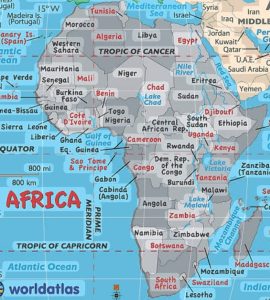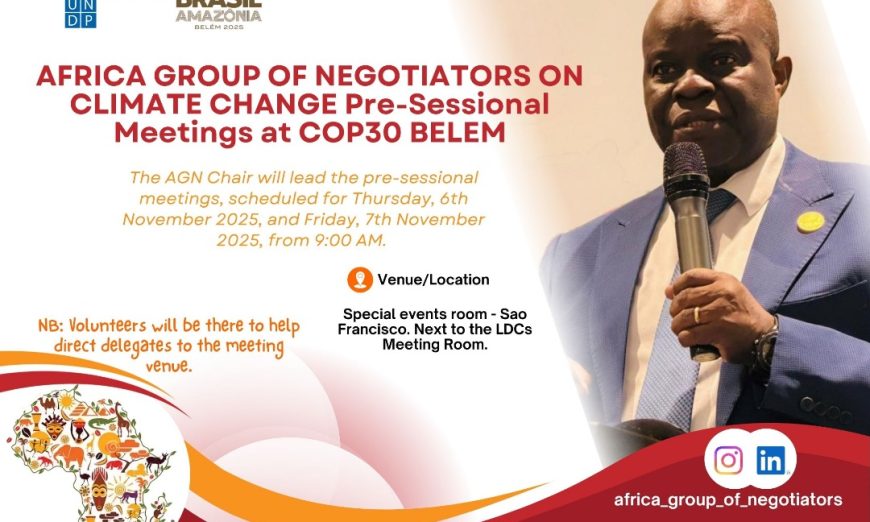As Tanzania leads Africa’s united climate agenda toward COP30 in Brazil, history offers both inspiration and warning. From the Great Green Wall to the African Renewable Energy Initiative, past continental efforts were rich in promises but poor in accountability. Will Tanzania’s leadership turn Africa’s climate unity into genuine action – or repeat the same costly mistakes?
…………………………………………………………………………………..
WHEN Tanzania takes the lead in coordinating Africa’s position at COP30 in Belém, Brazil, it will do so at a decisive moment. The world is running out of time to act on climate change. Africa – home to some of the planet’s most vulnerable populations – is demanding climate justice.
The symbolism of Tanzania leading Africa’s voice is powerful. Yet, as history shows, leadership in climate diplomacy has been coming with a warning: without transparency, accountability, and inclusion, noble ambitions risk collapsing into political theatre.
Over the past decade, Africa has launched several impressive climate initiatives meant to demonstrate unity and action. Some succeeded in shaping the global agenda. Many stumbled, not for lack of ideas, but for lack of accountability. Tanzania now stands at the crossroads of these lessons.
The African Adaptation Initiative and the silent struggle for accountability
In 2015, during COP21 in Paris, African leaders launched the African Adaptation Initiative (AAI) with the promise of driving a continent-wide approach to climate resilience. It was hailed as Africa’s collective answer to adaptation challenges; a “homegrown” framework to mobilize resources and strengthen national responses.
Yet, almost a decade later, civil society watchdogs and researchers struggle to find clear progress reports. There is little public information on how funds have been used or which communities have benefited. The AAI’s silence reflects a deeper problem: initiatives created in the name of unity often fade when citizens cannot track results or access data.
For Tanzania, this history offers a clear lesson. Climate leadership must be open to scrutiny. Public communication, transparent reporting, and citizen participation are not bureaucratic burdens; they are the backbone of credibility.
The Great Green Wall: Big dreams, weak systems
The Great Green Wall, launched in 2007 by the African Union, aimed to restore 100 million hectares of degraded land across the Sahel. An 8,000-kilometre living barrier against desertification, it became a symbol of African resilience. Donors pledged billions.
But by 2021, independent evaluations found that only about 15 percent of the target had been achieved. Fragmented coordination, overlapping national interests, and opaque financial management eroded trust. Some governments reportedly used the initiative to attract international funds without ensuring that projects reached affected communities.
This failure shows that ambitious slogans do not plant trees. Strong monitoring, local ownership, and gender-inclusive planning do.
Tanzania’s COP30 coordination should ensure that Africa’s next collective climate effort does not repeat the same “announcement without accountability” cycle.
The African Renewable Energy Initiative (AREI) and power politics
Another ambitious plan, the African Renewable Energy Initiative (AREI), launched in 2015, promised to install 300 gigawatts of clean energy by 2030. Within a year, the project was entangled in controversy. African civil society accused Western donors of political interference and African leaders of allowing external control over what was meant to be an African-led initiative.
Disputes over project governance nearly tore the initiative apart. It became a reminder that ownership and transparency must go hand in hand. Africa cannot claim climate sovereignty while keeping its citizens and institutions in the dark.
Tanzania must therefore guard its leadership from both internal opacity and external manipulation. A credible African voice at COP30 must be both independent and inclusive.
The gender gap in climate leadership
Across these past initiatives, another pattern emerges — the absence of women in leadership and decision-making. Yet women, especially in rural Africa, bear the brunt of climate impacts. They are food producers, caregivers, and natural resource managers. When adaptation projects ignore them, solutions fail to reach the grassroots.
For Tanzania, integrating women’s voices into Africa’s COP30 agenda is not a courtesy. It is a necessity. Climate funds should support women-led projects, and negotiation delegations should include women experts and activists. Gender inclusion is a measure of seriousness – not symbolism.
Building an accountable African voice
Tanzania’s leadership gives the continent a chance to correct course. An accountable African position at COP30 would:
– Publish clear policy priorities and progress updates before, during, and after the summit.
– Engage civil society, academia, youth, and women’s groups in consultations to shape the agenda.
– Track financial commitments and expenditures through transparent reporting mechanisms.
– Ensure independent monitoring by journalists and environmental watchdogs.
Such measures would transform Africa’s collective climate diplomacy from rhetoric to results.

A moment to redefine Unity
Africa’s credibility at COP30 will depend not on how loud its leaders speak, but on how accountable its process becomes. If Tanzania manages this role with openness and fairness, it can set a new standard for continental leadership, one that reflects genuine unity, gender justice, and integrity.
But if the process repeats old mistakes – secretive committees, opaque finances, and silenced civil voices – Africa risks losing more than credibility. It will lose the moral authority that has long been its strongest bargaining power in the climate fight.
Ruth Mollel, a retired senior public servant and former member of parliament l, says Tanzania’s development goals must be SMART and address grassroots realities, with a strong focus on civic education, especially for women who are most affected.
Integrating clean energy, health, and environmental protection is key to building a healthy and productive society, she says, noting:
“The main polluters are developed countries – China included – they should pay more for clean energy.”
As Tanzania steps onto the global stage in Belém, it carries not just a continent’s hope but its history. The past has shown what happens when ambition outpaces accountability. The future, if handled wisely, can show what Africa achieves when both walk together.
“Africa’s credibility at COP30 will depend not on how loud its leaders speak, but on how accountable their process becomes.”










